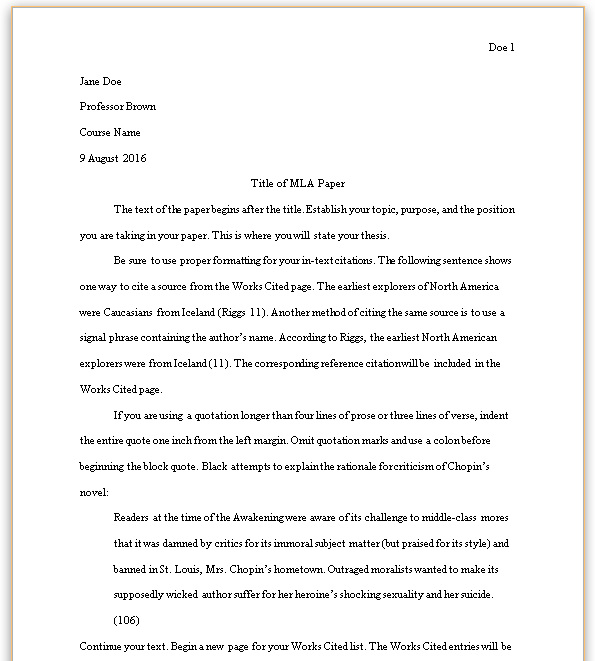Create a 3-5 page annotated bibliography and summary based on your research related to best practices addressing a current health care problem or issue.
INTRODUCTION
In your professional life, you will need to find credible evidence to support your decisions and your plans of action. You will want to keep abreast of best practices to help your organization adapt to the ever-changing health care environment. Being adept at research will help you find the information you need. For this assessment, you will research a health care problem or issue faced by current health care organizations.
IMPORTANT: Please review the “Instructions” section of Assessment 2 in your courseroom carefully! It includes a PDF that lets you know which two healthcare issues you are allowed to choose between.
Next, choose the appropriate tab (above) to find example searches that will walk you through the process of finding articles for your chosen healthcare issue. Once you find the articles you need with the help of this guide, you will need to read the articles and create an annotated bibliography. Again, review the instructions in your course for the full assessment requirements. They also include an example assessment.
INSTRUCTIONS
Note: The requirements outlined below correspond to the grading criteria in the scoring guide. At a minimum, be sure to address each point. In addition, you are encouraged to review the performance-level descriptions for each criterion to see how your work will be assessed.
For this assessment, research best practices related to a current health care problem. Your selected problem or issue will be utilized again in Assessment 4. To explore your chosen topic, you should use the first two steps of the Socratic Problem-Solving Approach to aid your critical thinking.
Socratic Problem-Solving Approach
The Socratic Method is a teaching style in which teachers ask students questions designed to stimulate more complete thinking and deeper insight. It also relates to the steps of performing scientific research. When the Socratic approach is applied, students are prompted to look more closely at your ideas, question your assumptions and accepted premises, and view your choices through a rigorous lens.
Apply the Socratic approach
Applying the Socratic approach to problem solving helps you identify gaps and improve your thinking when writing papers or completing projects. The questions may be used to spark new insights when responding to discussion topics and posts.
· Identify the elements of the problem, issue, or question
· Analyze, define, and frame the problem, issue, or question
· Consider solutions, responses, or answers
· Choose a solution, response, or answer
Select one of the health care problems or issues presented in the Assessment 02 Supplement: Applying Research Skills [PDF] Download Assessment 02 Supplement: Applying Research Skills [PDF] resource.
Assessment 02 – Applying Research Skills For this assessment, you will research best practices related to a current health care problem. Your selected problem or issue will be utilized again in Assessment 4. Before you complete the instructions detailed in the courseroom, first select one of the following health care problems or issues: Medication Errors o Description: A medication error is a preventable adverse effect of a patient taking the wrong medication or dosage, whether or not it is evident or harmful to the patient. Medication errors can be a source of serious patient harm, including death. o Interventions: Electronic prescribing, pharmacist reviews, patient education. o Keywords: Adverse drug events, medication reconciliation, patient safety, medication administration, medication errors, medication safety. Healthcare System Errors o Description: The health care system in the United States has been the subject
care. Healthcare system errors are flaws or mistakes in the healthcare delivery system that can lead to patient harm or suboptimal outcomes. o Interventions: Quality improvement initiatives, error reporting systems, staff training, system-wide transformation, process redesign, electronic health records. o Keywords: Patient safety, medical malpractice, system-based errors. After you have selected one of the problems/issues from the list above, return to the detailed instructions in the courseroom to complete your assessment. 1
1. Write a brief overview of the selected health care problem or issue. In your overview:
· Summarize the health care problem or issue.
· Describe the professional relevance of this topic.
· Describe any professional experience you have with this topic.
2. Identify peer-reviewed articles relevant to this health care issue or problem.
· Conduct a search for scholarly or academic peer-reviewed literature related to the topic and describe the criteria you used to search for articles, including the names of the databases you used. You will select four current scholarly or academic peer-reviewed journal articles published during the past 3–5 years that relate to your topic.
· Refer to the NHS-FPX4000: Developing a Health Care Perspective Library Guide to help you locate appropriate references.
· Use keywords related to the health care problem or issue you are researching to select relevant articles.
3. Assess the credibility and explain relevance of the information sources you find.
· Determine if the source is from an academic peer-reviewed journal.
· Determine if the publication is current.
· Determine if information in the academic peer-reviewed journal article is still relevant.
4. Analyze academic peer-reviewed journal articles using the annotated bibliography organizational format. Provide a rationale for inclusion of each selected article. The purpose of an annotated bibliography is to document a list of references along with key information about each one. The detail about the reference is the annotation. Developing this annotated bibliography will create a foundation of knowledge about the selected topic. In your annotated bibliography:
· Identify the purpose of the article.
· Summarize the information.
· Provide rationale for inclusion of each article.
· Include the conclusions and findings of the article.
· Write your annotated bibliography in a paragraph form. The annotated bibliography should be approximately 150 words (1–3 paragraphs) in length.
· List the full reference for the source in APA format (author, date, title, publisher, et cetera) and use APA format for the annotated bibliography.
· Make sure the references are listed in alphabetical order, are double-spaced, and use hanging indents.
5. Summarize what you have learned while developing an annotated bibliography.
· Summarize what you learned from your research in a separate paragraph or two at the end of the paper.
· List the main points you learned from your research.
· Summarize the main contributions of the sources you chose and how they enhanced your knowledge about the topic.
·
6. Example Assessment: You may use the following to give you an idea of what a Proficient or higher rating on the scoring guide would look like:
Additional Requirements
Your assessment should also meet the following requirements:
· Length: 3–5 typed, double-spaced pages, not including the title page and reference page.
· Font and font size: Times New Roman, 12 point.
· APA tutorial: Use the APA Style Paper Tutorial [DOCX] for guidance.
· Written communication: Write clearly and logically, with correct use of spelling, grammar, punctuation, and mechanics.
· Content: Provide a title page and reference page following APA style.
· References: Use at least four scholarly or academic peer-reviewed journal articles.
· APA format: Follow current APA guidelines for in-text citation of outside sources in the body of your paper and also on the reference page.
Competencies Measured
By successfully completing this assessment, you will demonstrate your proficiency in the following course competencies and scoring guide criteria:
· Competency 2: Apply scholarly information through critical thinking to solve problems in the field of health care.
· Assess the credibility and relevance of information sources.
· Analyze academic peer-reviewed journal articles using the annotated bibliography organizational format.
· Summarize what was learned from developing an annotated bibliography.
· Apply academic peer reviewed journal articles relevant to the health care problem or issue being researched.
· Produce text with minimal grammatical, usage, spelling, and mechanical errors.
· Integrate into text appropriate use of scholarly sources, evidence, and citation style.


